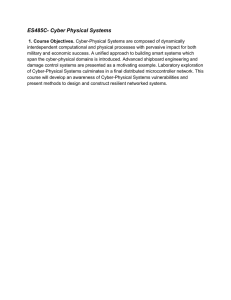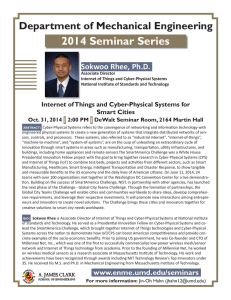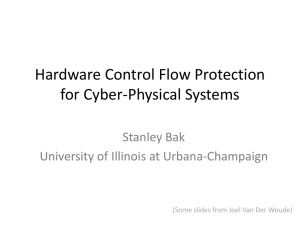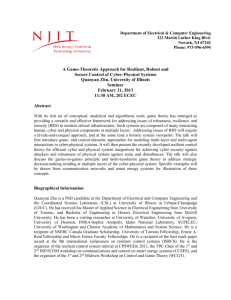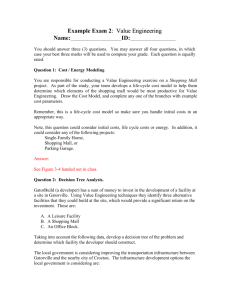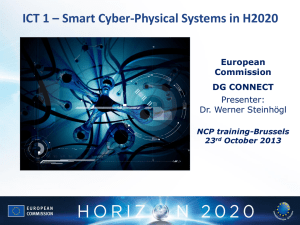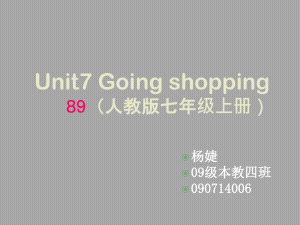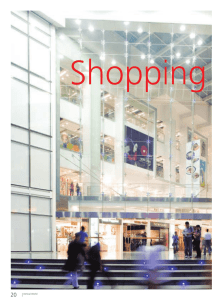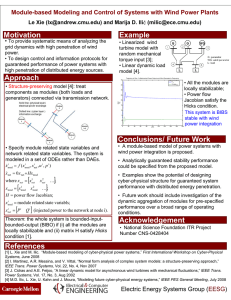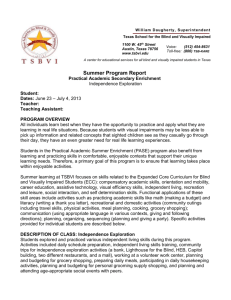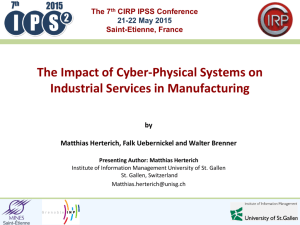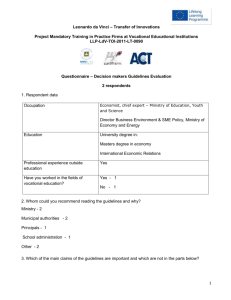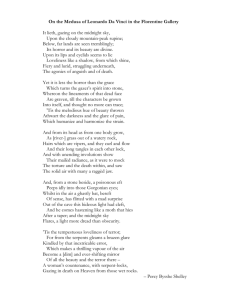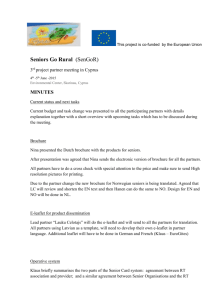U&: A cyber-physical system concept for cross
advertisement
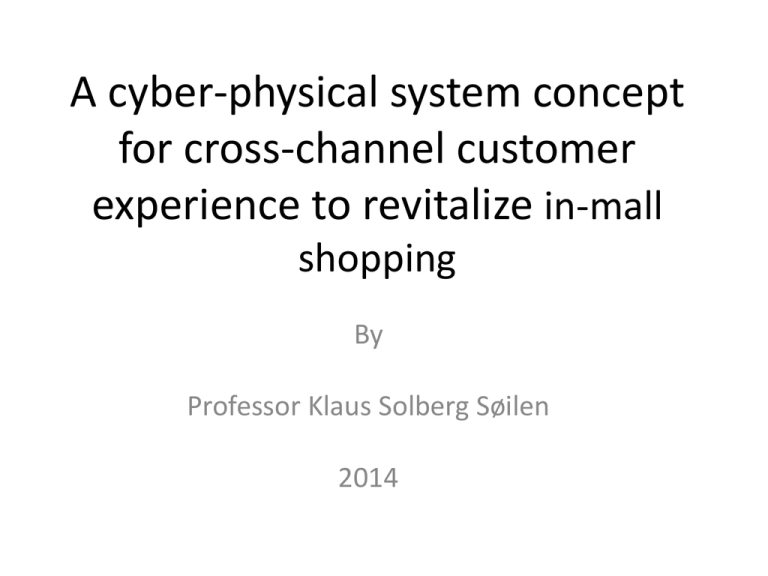
A cyber-physical system concept for cross-channel customer experience to revitalize in-mall shopping By Professor Klaus Solberg Søilen 2014 The project: The Delft model https://www.youtube.com/watch?v=ZHrg63TUKGw&index=1&list=FL9Eopab1VaNg5vBvGFq6Bgg The book: Product Development in the Socio-sphere: Game Changing Paradigms for 21st Century Breakthrough Product Development and Innovation From the Abstract • • • • • • • • • We take the customer journey as the guiding model for customer experience building and focus in our research on converting cross-channel built customer expectation into enriched customer experiences in in-mall stores. We combine a mall website, mobile apps, and interactive storefronts into an integrating system. Information exchanging between window and personal devices is seamless, ‘swiping’ information from one onto the other. A Facebook shopping-with-online-friends process inserts real time feedback from social media friends in the storefront window. Furthermore, we show how ‘gamification’ and trust and loyalty breeding can be employed. The ubiquitous tracking of customers offers deep customer relation and experience of data. We implemented a first, partly surrogate prototype to validate the concept. This partly empirical, partly designed experimental implementation can itself be a big data tool for scientists and retailers to acquire deeper insights. The concept can be generalized to other application contexts. Keywords U-retail, cross-channel, customer journey, social media, customer experience, cyber-physical system, multi-modal, customer tracking, shopping mall, retail chain Introduction Background On-line shopping The model System concept synthesis Overall requirements Modeling the retailer-customer interaction Design and implementation The in-mall context Building the customer experience Concept validation Part 2 Prototype system overview Part 2 Summary Conclusion • Environment-originating arousal cannot be measured and controlled accurately using conventional technologies; a simple crowding meter (people counter, either gate-control or visual) could serve as an achievable first approach; • Customer-engagement can be measured with emerging visual technologies but interpretation needs to take place carefully. However, a coarse relationship of involvement and immersive-ness can empirically be established; • Profile or personal heuristics can be maintained on customers to learn effective control of arousal in a longitudinal manner. A fuzzy classification approach is seen as a suited means-end technology; • Online experience can be offered to reach those customers who found the in-mall experience inconvenient. Online experiences can be consumed anywhere in the customer journey; either elsewhere in the mall, at home, or on mobile. • The cyber-physical system enables connections with the retailer enterprise systems, like the Enterprise Resource Planning system (ERP), the Virtual Product Management database (VPM) and the Customer Relationship Management system (CRM). Thank You! - Klaus
